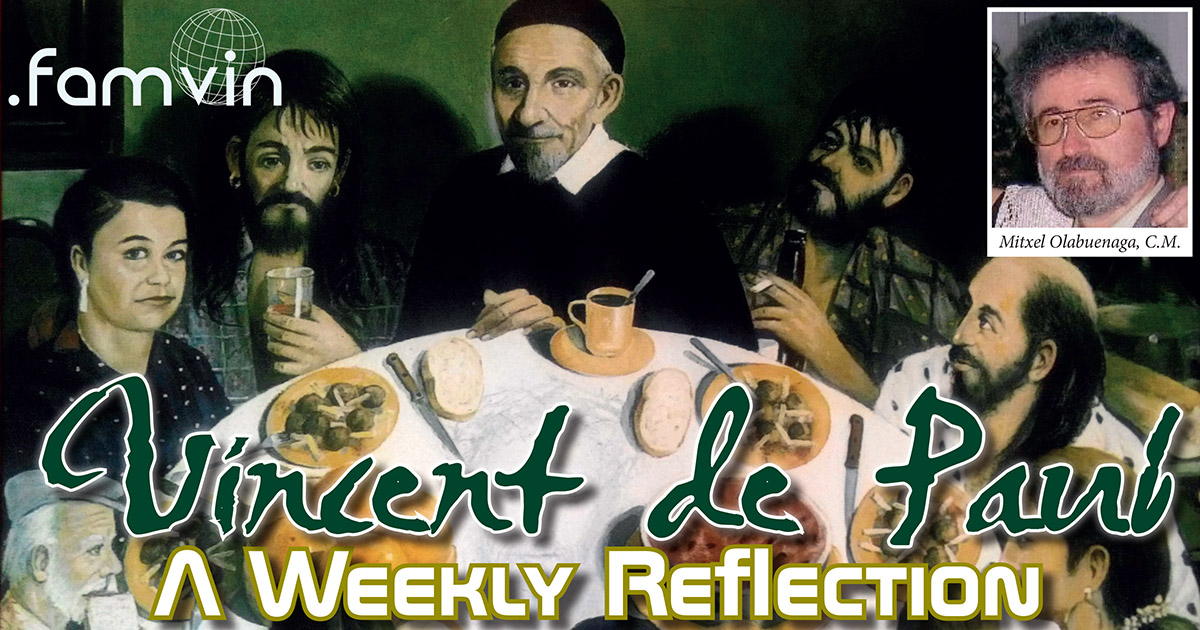“You should know, Sisters, that Our Lord willed to experience in His own person every kind of distress imaginable. The scriptural expression is that He willed to be regarded as a scandal to the Jews and a folly to the Gentiles (1 Cor 1:23) to show you that you can serve Him in every poor afflicted person. That’s why He willed to enter this state in order to sanctify it like all the others” (CCD X, conference 71).
“Did He serve persons who were poor, Sisters? He served them corporally and spiritually; He went from place to place, healing the sick, giving them what money He had, and instructing them about their salvation.” (CCD IX, conference 9).
Vincent de Paul
Reflection:
- Let’s begin with the end that, as on many other occasions, is possibly the key of Mr. Vincent’s reflection. And the main point is not the first question (“Did Jesus Christ serve the poor?”… Vincent’s takes it for granted) but how he did it. The answer not only shows the clairvoyance of his thought but the energy with which he says it: “[1] He served them corporally and spiritually; [2] He went from place to place, [3] healing the sick, [4] giving them what money He had, and [5] instructing them about their salvation.”
- We will hardly find a better synthesis of the Gospel. We will hardly find a more profound updating of the being and doing of the believer, especially of the Vincentian missionary. Five affirmations which, together with the five virtues, mark the frontispiece of the Vincentian works, especially of the Congregation of the Mission: to serve corporally and spiritually the poor (inseparable duality that must continually interrogate us), to go from one place to another (in front of the immobility of other institutions), to heal the sick (the main work of Mercy), to give all we have (all goods at the service of the Mission) and to instruct those who do not know (in every moment).
- All of the above is conceived by Mr. Vincent not as a theoretical resource but from a vital perspective that can not be other than Christological. That is why he affirms that “Our Lord willed to experience in His own person every kind of distress imaginable” even when that position led him to be “a scandal to the Jews and a folly to the Gentiles.” And he does this to point out, to those who wish to associate to his plan, what is the way to perfection, which is none other than to “serve Him in every poor afflicted person.” Prophetic words for the first world.
- Vincent finishes the brief “recommendation” with an interesting statement: to carry out all the above you must “experience” the same situation: “to enter this state.” That is what the Son of God did, being born as the rest of the common mortals, doing from experience to practice or becoming one with the poor so, from that experience, to be able to evangelize them.
Questions for dialogue:
- Is our experience “poor afflicted”?
- Are the five Vincentian affirmations present in our work?
- What does it mean to serve spiritually and corporally to the poor?
- What place does catechesis occupy in our works?
- Are we ready to be “scandalized” by the Reign of the Poor?
Mitxel Olabuenaga, C.M.
![]() Mitxel.OlabuenagaOrnes
Mitxel.OlabuenagaOrnes








0 Comments